HIPAA Violation Attorney Texas
Home » Practice Areas » Physician License Defense » HIPAA Violation Attorney Texas
Understanding HIPAA Privacy Violation Penalties
The Health Insurance Portability and Accountability Act of 1996 (HIPAA) is in place to protect patients’ rights and well-being. As a medical professional, you may be at risk of violating the rights of patients if you do not thoroughly understand all aspects of this important law. Penalties for violations are serious and can result in the loss of your professional license.
If you have been accused of violating a HIPAA regulation, you need an experienced attorney on your side. Contact the Texas professional license defense attorneys of the Leichter Law Firm at 512-495-9995 to discuss your case with a member of our qualified legal team.
What Is HIPAA?
When a person seeks treatment for any kind of condition, he or she deserves the right to privacy. In 1996, the federal government secured this right with legislation known as the Health Insurance Portability and Accountability Act, or HIPAA. The sections of HIPAA that apply to most healthcare providers are the Privacy Rule and the Security Rule.
If you work in the medical field, it is very important to be informed about HIPAA regulations. An accusation of violating these regulations could lead to the suspension or revocation of your professional license. To learn more about HIPAA and professional license defense, call the Texas medical license attorneys of the Leichter Law Firm at 512-495-9995.
The Privacy Rule
The Privacy Rule regulates the use of Protected Health Information, or PHI. PHI is defined as any information related to a patient’s diagnosis, treatments, or payments for medical care. The Privacy Rule puts strict limitations on how this information can be used and when it can be shared. It also secures each patient’s right to access his or her own PHI upon request.
The Security Rule
The Security Rule was written to address the issue of electronically stored PHI, also known as Electronic Protected Health Information or EPHI. This rule requires all hospitals, clinics, and insurance companies to take strict measures to protect their clients’ EPHI. These safeguards include administrative, technical, and physical protections.
HIPAA and Professional Licenses
Federal law takes HIPAA violations very seriously. Individuals or organizations that fail to follow HIPAA regulations may face fines totaling thousands or even millions of dollars. In addition, individuals who knowingly violate these regulations may be sentenced to several years in jail. Finally, professionals may also be penalized by the loss of their professional licenses.
Breach of Confidentiality and Duty to Warn
Patient confidentiality is important for many reasons. Confidentiality allows patients to tell medical professionals key facts that they would not otherwise disclose, encourages patients to seek help for serious and sometimes embarrassing problems, and shows a sign of respect for what the patient is going through. This is why acts such as the Health Insurance Portability and Accountability Act (HIPAA) were put in place. HIPAA requires that health care providers keep patient information and records private and secure, where they cannot be seen or accessed by others. These rules apply to any information, including that related orally or in writing.
To bolster HIPAA, the state of Texas also passed the Texas Medical Records Privacy Act, which applies the same rules of privacy to entities beyond the medical profession. This act applies to any individual, business, or organization that obtains, stores, or possesses protected health information, as well as their agents, employees, and contractors. Additional Texas laws outline privacy procedures in certain and specific contexts, such as patient-physician communication, patient records, especially sensitive health information, and the use of health information as legal proceedings.
With all of that being said, sometimes it is imperative for medical professionals to breach their vow of patient confidentiality. Laws regarding a medical professional’s mandatory duty to warn or protect vary from state to state. In Texas, unlike most other states, health care providers have no duty to warn or protect third parties. As a healthcare provider in Texas, you should know the following:
- If a medical professional believes that their patient is an immediate danger to themselves or others, the physician may notify medical or law enforcement authorities
- If a patient acts on claims made to a medical professional, and harms or injures a third party, the medical professional is not accountable for the actions. Under Texas law, they had no duty to warn or protect the third party.
If you are a medical provider such as a physician, nurse, psychiatrist, therapist, counselor, or social worker and you are facing the threat of losing your job and license due to issues with confidentiality, know that you have options and defenses.
Potential Penalties
In 2009, the American Recovery and Reinvestment Act was passed which outlined the type of penalties that are given to people that violate HIPAA laws. Actions by those that did not know they were violating HIPAA may be less severe than others.
The incident or incidents that are in question will be reviewed and a penalty will be assigned depending on the intentions of the accused individual. Penalties frequently range between $100 per violation and $50,000 per violation with maximums between $25,000 and $1.5 million annually.
In addition to monetary fines, accused medical professionals may face jail time and the loss of their medical license.
Contact Us
If you or someone you love has been accused of violating HIPAA, you most likely have a lot of questions and concerns about your rights and professional future. Contact the Texas medical license defense lawyers of the Leichter Law Firm PC at 512.495.9995 to discuss your situation with a knowledgeable attorney.
Get in Touch
Physician License Defense FAQs
Physician License Representation Locations
Office Locations
1602 E 7th St
Austin, TX 78702
Phone: (512) 495-9995
Get Directions
3700 N Main St
Houston, TX 77009
Phone: (713) 714-2446
Get Directions
214 N 16th St #128
McAllen, TX 78501
Phone: (956) 205-0884
Get Directions

